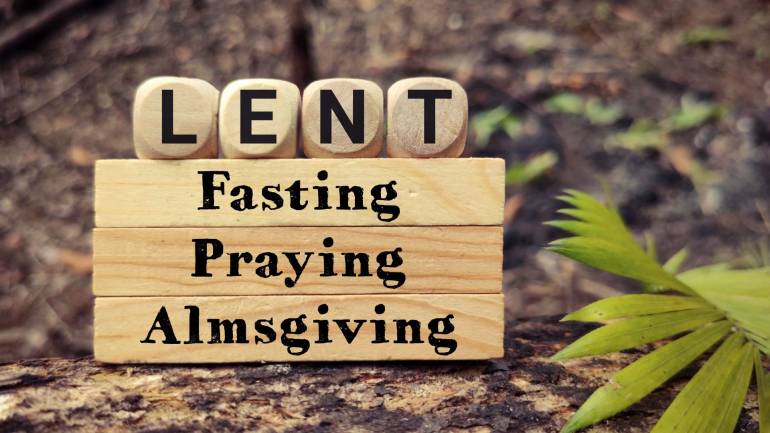A Cry for God’s Mercy and Forgiveness

The Catholic Church marks the observance of Ash Wednesday on February 14, 2024. This day holds significance as the commencement of Lent, the period of preparation leading up to Easter Sunday, which commemorates the resurrection of Jesus Christ.
In the beginning of the sixth century, people began the fast on the preceding Wednesday to ensure forty days of actual fasting (excluding Sundays). Henceforth, this Wednesday marked the start of Lent. It has been an early custom that special penance for those who are guilty of serious sin should start at the beginning of Lent.
In the beginning, it was on Monday, after the first Sunday of Lent. Later, the Church shifted the observance to Ash Wednesday. The penitents in those days were given penitential garments, and ashes were sprinkled on them, followed by the rite of expulsion from the Church. These special garments and ashes receive inspiration from the Old Testament and Gospel (Mt. 11:21). Tertullian (founder of Western Theology) and Cyprian (theologian and bishop) mention this practice in their writings.
The rite of expulsion disappeared in the 10th century, but the rite of ashes remained. In 1901, Pope Urban II recommended this practice to all the churches. In the new missal, this rite of ashes takes place after the Gospel and homily.
The summons of Jesus in the Gospel according to St. Mark: “ Turn away from sin and be faithful to the gospel.” (Mk.1:15) and traditional formula: “Remember, man, you are dust and to dust you will return.” During the imposition of ashes, the minister places the ashes on the forehead, using Genesis 3:19 as the traditional formula. The imposition of ashes is a penitential practice, symbolizing our dependence on God's mercy and forgiveness.
We, as a church, contemplate and pray about the call Jesus has given us. Jesus, in the Gospel according to St. Matthew calls us to pray, to fast, and to give alms: ‘When you pray, do not be like the hypocrites,’ ‘when you fast, do not look gloomy,’ ‘when you give alms, do not let your left hand know what your right is doing’ (Mt 6:5, 16, 3).
Prayer is the process of listening to and responding to God's daily call, sustaining and nurturing our relationship with our triune God. According to St. Teresa of Avila, prayer is an intimate sharing between friends; it means taking time frequently to be alone with someone we know loves us.
Without prayer, personal and communal, this relationship is diminished, sometimes to the point of complete silence on our part. Pope Francis, in his Lenten message 2018, says that by devoting more time to prayer, we enable our hearts to root out our secret lies and forms of self-deception and then find the consolation God offers.
Fasting, a very special form of penance, and Jesus' second call have been a consistent part of our Catholic tradition. All of us have to deal with areas of servitude, whether regarding smoking or alcohol consumption, misused sexuality, uncontrolled gambling, psychological hang-ups, spiritual obsessions, use of stimulants, immoderate use of the internet, excessive amounts of television watching, or preoccupations with other forms of entertainment like gossiping. By fasting and self-denial, by living lives of moderation, we have more energy to devote to God's purposes and a better self-esteem that helps us to be more concerned with the well-being of others.
Almsgiving: The third call of the Lord is to give alms. Jesus was always concerned about those who were poor and in need. He was impressed with the widow who, despite having so little, gave to others: "I tell you truly, this poor widow put in more than all the rest; for those others have all made offerings from their surplus wealth, but she, from her poverty, has offered her entire livelihood" (Lk 21:3–4).
Pope Francis wants us as Christians to follow the example of the Apostles and see in the sharing of our possessions a tangible witness of the communion that is ours in the Church. To be a disciple of Christ means to live a life of charity. All of us are called to actively participate in evangelizing and transforming our world.
During the forty-day Lenten period, the Church aligns itself with the desert experience of Jesus by engaging in prayer, charitable deeds, and increased adherence to spiritual obligations. This season serves as a time of preparation, leading us towards a more profound participation in the Easter mysteries and a renewed commitment to living out the teachings of Christ in our daily lives.
*The writer is a member of the Karnataka-Goa Province of the Order of Discalced Carmelites based at the Divine Spring Retreat Centre, Goa, India.
Radio Veritas Asia (RVA), a media platform of the Catholic Church, aims to share Christ. RVA started in 1969 as a continental Catholic radio station to serve Asian countries in their respective local language, thus earning the tag “the Voice of Asian Christianity.” Responding to the emerging context, RVA embraced media platforms to connect with the global Asian audience via its 21 language websites and various social media platforms.














